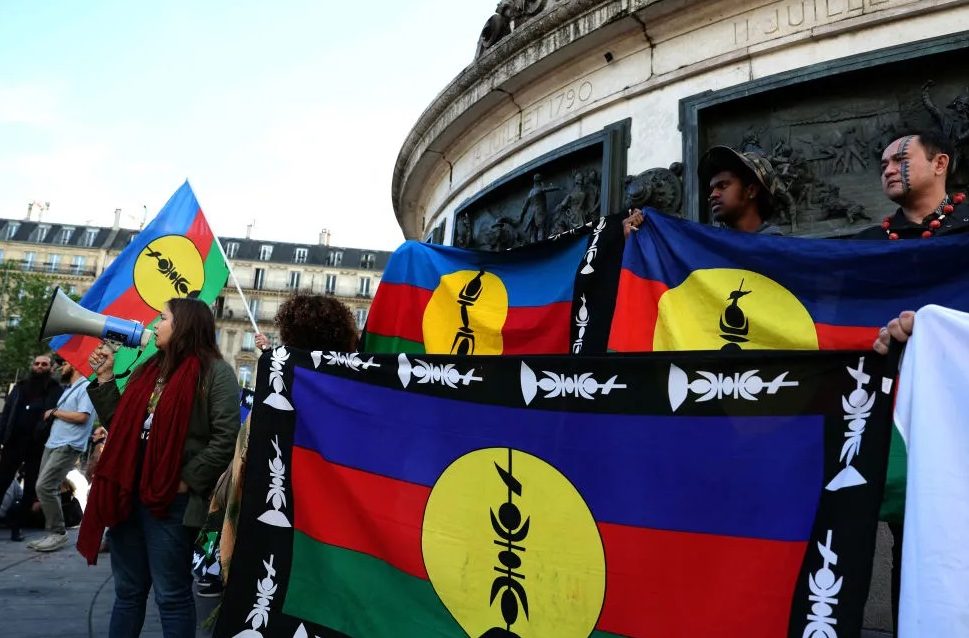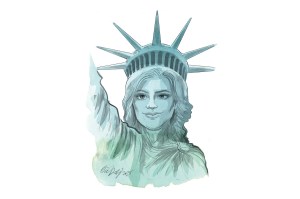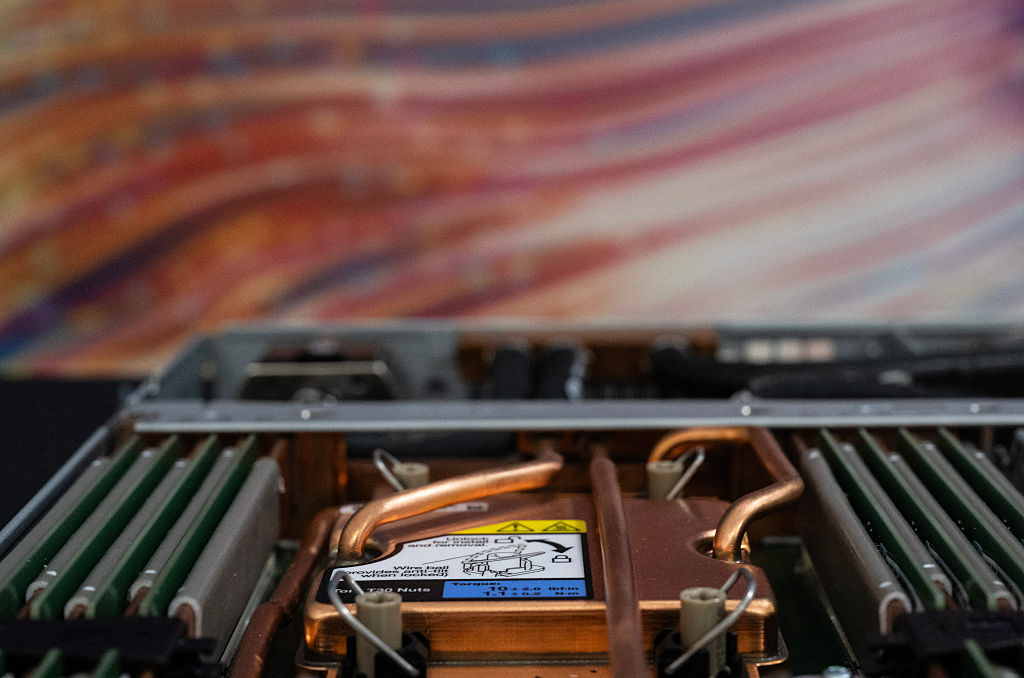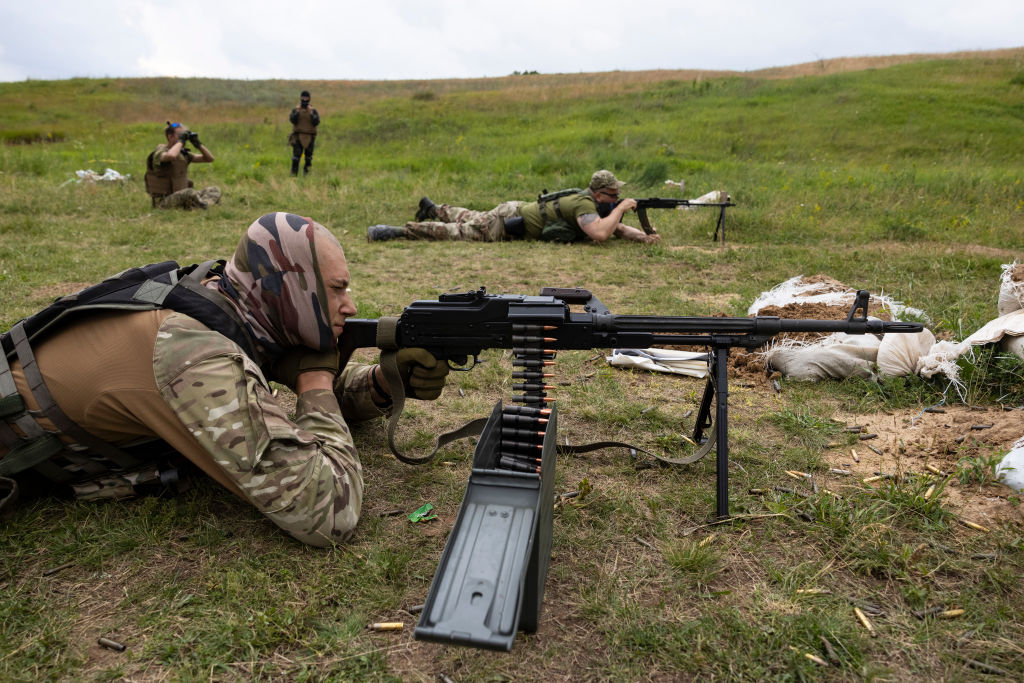New Caledonia must not become the “Wild West” declared Emmanuel Macron last week during his flying visit to the Pacific island. For two weeks the indigenous people, the Kanaks, have been in revolt against a voting reform they believe will marginalize them.
The French president’s visit achieved little. Not long after Macron’s departure an insurgent was shot dead by police. Seven people have been killed in the unrest and the material damage is estimated at more than one billion euros.
It is not only France’s overseas territory that is in danger of resembling the Wild West. Mayhem has become a characteristic of Macron’s France, and rarely does a week pass without an act of barbarity. On Sunday afternoon in Lyon a man with a knife wounded four passengers in the metro.
But nowhere feels more like Dodge City than Paris. The weekend before last a jewelers in the upmarket eight arrondissement was robbed. It was a brazen heist in the middle of the morning, and as the bandits fled they fired shots in the air like a scene from a Hollywood western. The crime took place less than a mile from where, twelve months ago, an estate agent was shot dead by a contract killer. It was a case of mistaken identity; the victim had no link to a drugs cartel, as the intended target allegedly had.
If violent crime is creeping ever closer to the center of Paris, the worst of it remains in the “wild north” of the city. Last week in Aubervilliers two people were wounded by a grenade hurled from a car onto a pavement in the early evening.
An eye-witness said the aftermath of the explosion was “the kind of scene you see in war footage.” A woman suffered severe injuries to her hand, and a man lost an arm and had “half his face ripped off.” Police are investigating the motive.
The incident occurred a few miles west of Sevran where earlier this month two men were executed in an alleyway. Both were known to police as drug traffickers.
My wife teaches in a school a mile from the alleyway. A few days after the double murder, she and her class went into Paris on a school outing in the evening. It took them over three hours to get home; the metro and suburban train network have been severely disrupted for months because of work to the lines ahead of the Olympics. Replacement bus services have been provided but following the shooting the route was shortened to avoid the area. It was considered too risky for buses.
So, at midnight, my wife and twenty-five teenagers found themselves standing in one of the most dangerous districts of western Europe. Fortunately the parents came to the rescue, arriving in cars and vans to collect their frightened offspring.
Also in the north of Paris — a mile and a half from the grenade attack — is the Stade de France, the main venue for the Olympic Games.
Last week the mayor of Paris, Anne Hidalgo, was taken to task by an opposition city councillor, who accused her of turning Paris into two cities: “The Paris of the Olympic Games: well-organized, festive, and which will feel the benefit of the Games. And the Paris that suffers, which no one looks at. That is everyday Paris, where the people will see no benefit.”
An angry Hidalgo rejected the accusation. “I’m sick and tired of the Games-bashing!” she declared, adding that the Olympics was an exceptional opportunity for Parisians “to celebrate something together.”
Is that true? The best way to celebrate the Olympics is as a spectator but ticket prices are exorbitant. “These are going to be the most expensive ticket prices in an athletics arena that we have witnessed at an Olympic Games,” complained Sebastian Coe, the president of World Athletics. “We asked for a balance… you want fans within affordable prices.” Coe was the chairman of the organizing committee of the 2012 London Olympics, a where 90 percent of tickets were under $125. This is not the case for the Paris Games. For example, in London the cheapest ticket for the final of the men’s 100m was $70); in Paris it is $160.
Ticket prices are beyond the range of many in France, who are struggling with a cost of living crisis that has included sharp rises in prices for food and energy bills. Parisians are also confronted with other increases: violent crime and drug trafficking are both up; in 2023 there was a 20 percent increase in murders on the previous year in the greater Paris region.
It’s not much fun being a Parisian these days unless, of course, you’re a person of importance who has private transport and a security detail. Life, in other words, for the politicians in the “Paris Bubble” is rosy. Many will probably be seen at the Olympics, enjoying the lavish corporate hospitality on offer.
Outside the bubble it’s business as usual. Murder, mayhem and misery. If Hidalgo has turned Paris into two cities, Macron has turned France into two nations. One is the well-off and the other is the Wild West.
This article was originally published on The Spectator’s UK website.


























Leave a Reply